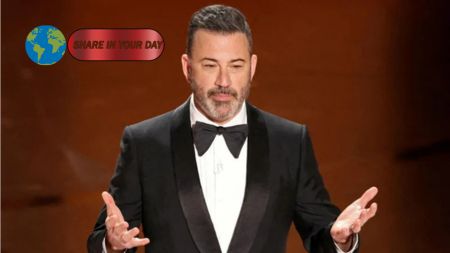Spike in Disney+ Cancellations Following Jimmy Kimmel Suspension, Data Shows
Streaming cancellations at Disney+ and Hulu surged in September after the suspension of comedian Jimmy Kimmel, with new analytics data suggesting a potentially costly fallout for the media giant.

Subscriber cancellations at Disney+ and Hulu spiked dramatically last month following the temporary suspension of Jimmy Kimmel Live host Jimmy Kimmel, according to new data released by analytics firm Antenna. The data highlights a turbulent month for Disney, as political backlash and calls for boycotts converged with scheduled price hikes, creating a perfect storm of subscriber churn.
Antenna reports that Disney+’s cancellation rate doubled, jumping from an average 4% to 8% in September—representing an estimated 3 million subscriber losses. Meanwhile, Hulu’s churn rate climbed even higher to 10%, equating to more than 4 million cancellations. By contrast, Netflix maintained a steady churn rate of 2%.
The data offers the first indication that Kimmel’s brief suspension may have had real financial consequences for Disney’s streaming business.
Controversy Ignites Free Speech Debate
The backlash began on September 17, when Disney—owner of ABC, which airs Jimmy Kimmel Live—suspended the comedian following controversial remarks made during a broadcast. Two days earlier, Kimmel had commented on the killing of conservative activist Charlie Kirk, saying the “MAGA gang” was trying to deflect political blame and “score political points” from the incident.
The remarks triggered public pressure from conservative figures, culminating in a public threat from FCC chair Brendan Carr, who warned that ABC’s broadcast license could be reviewed.
Shortly afterward, Disney pulled Kimmel from the air—a move that sparked widespread outcry.
The decision was met with intense criticism from civil rights groups, Hollywood creatives, labor unions, and First Amendment advocates. The ACLU called the action “a clear violation of free speech principles,” while members of the Writers Guild of America and Screen Actors Guild issued statements condemning what they saw as politically motivated censorship.
Protests were held in California, and a petition urging a boycott of Disney+ and Hulu gathered momentum online.
Reinstatement and Damage Control
Under mounting public and industry pressure, ABC reinstated Jimmy Kimmel within a week. In the days that followed, hundreds of celebrities signed an open letter supporting the comedian, defending his remarks as protected political speech and calling for a broader discussion on freedom of expression in American media.
Despite the reinstatement, the data suggests the damage may have already been done.
Antenna’s report notes that the surge in cancellations coincided not only with Kimmel’s suspension but also with Disney’s scheduled subscription price increases, part of a broader corporate strategy to boost profitability in its streaming division. This overlap makes it difficult to attribute the churn spike solely to the Kimmel controversy, though experts say the timing strongly suggests a correlation.
“It’s rare to see subscriber loss double in a single month without a major technical or pricing issue,” said one streaming industry analyst, who requested anonymity. “Political backlash, especially around free speech, is becoming a more volatile factor for entertainment companies.”
New Sign-Ups Softened the Blow
Despite the high cancellation rates, Disney+ and Hulu did report an uptick in new subscriptions during the same period, according to Antenna. These new sign-ups helped offset some of the losses, though overall net subscriber growth remains unclear.
Disney has declined to comment on the data, and Hulu has yet to respond.
The episode illustrates how entertainment companies increasingly find themselves at the intersection of politics, culture, and commerce, where decisions made under public scrutiny can quickly translate into measurable financial impact.
For Disney, a brand long seen as apolitical and family-friendly, the Kimmel incident underscores the challenges of managing politically sensitive content—especially as the battle for streaming dominance intensifies.



